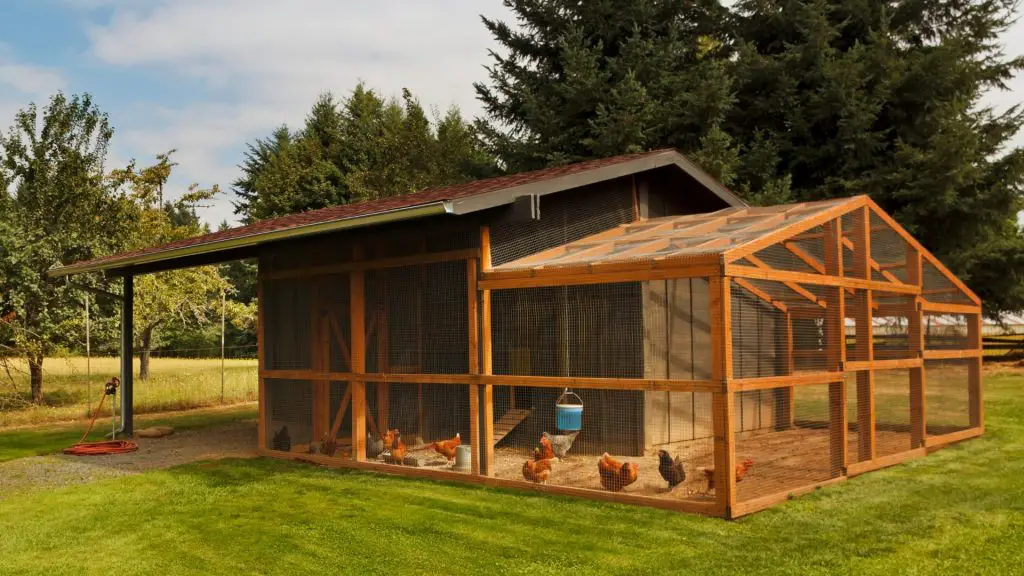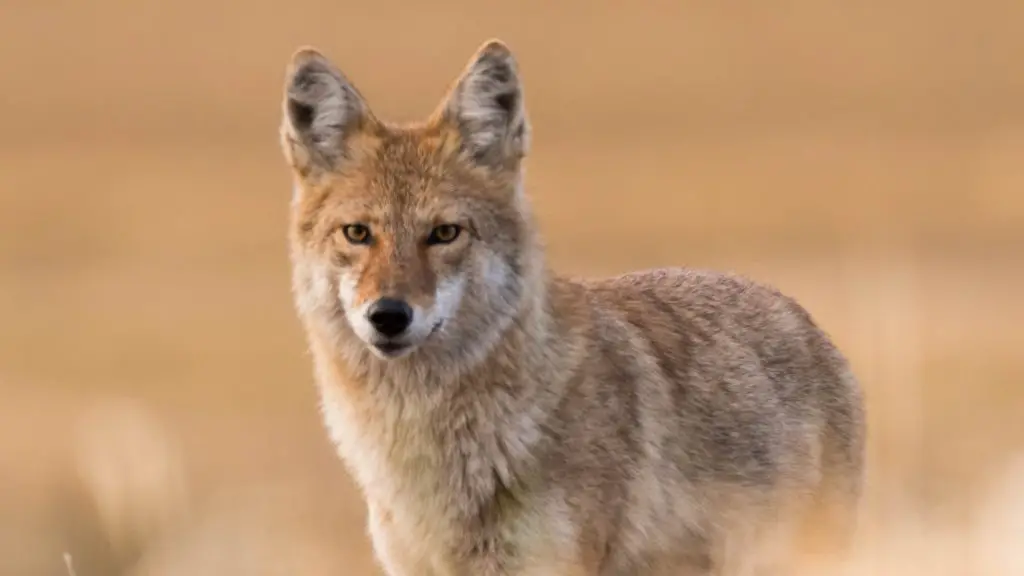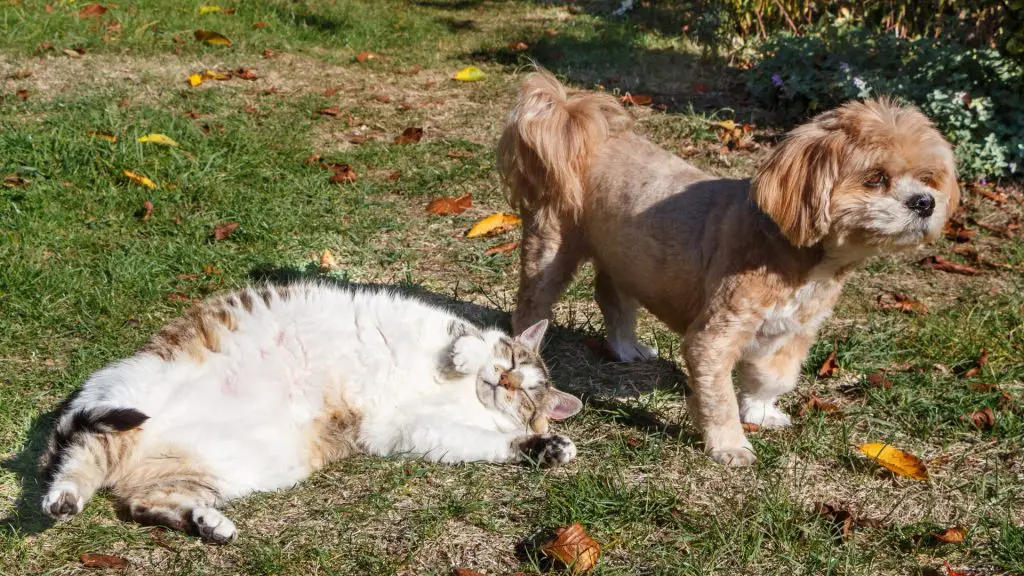One of the first and more important steps you can take when starting your backyard flock is to ensure that your chickens are secured and won’t be in danger from predators.
Here’s a quick guide of how to keep your chickens safe:
- Establish basic coop security.
- Lock your chickens up at night.
- Improve fencing.
- Secure the doors.
- Improve the roof.
- Make underground protections.
- Research local predators.
Backyard chickens have a lot of predators, but read on for how you can keep them safe.
Guide to Keep Your Chickens Safe

1. Establish Basic Coop Security
There are some basic coop security measures you can take that will keep your chickens safe and contained. While it may seem like a lot of trouble to go through, your chickens will thank you later!
While it can be compelling to let your chickens wander around your yard at their leisure, you should keep your chickens safely contained and protected from predators at all times, not just while they are in their coop.
Related: Where to Put Chicken Coop? | Information and Facts
2. Lock Your Chickens up at Night
Above all else, the best thing you can do to keep your chickens safe is to lock them up every night, with no exceptions.
If your chickens are locked up and secured, they are not exposed and out in the open. They won’t be seen by predators who will remember to come back and look for ways to get in.
Chickens who are left outside are sitting ducks, and it puts them at even greater risk.
3. Improve Fencing
Make sure your chickens’ fencing is tall and robust. You want to make sure your chickens have enough room to flap around if they wish to, and there’s enough room for perches.
Tall fencing will block out some of the most common predators and keep your chickens from escaping while they are in their run. If your chickens attempt to escape, they could hurt themselves or get out and not be found.
You can use the following tips while building your fence:
- Do not use chicken wire. While it may be tempting to use, chicken wire is most effective at keeping chickens in, not keeping predators out.
- You should use a denser metal mesh that doesn’t move around. It should be stiff and hard to manipulate.
- Give the wire a good test pull yourself. If you can pull it apart, you should look into more substantial fencing. Some predators can tear into and through chicken wire and get at your chickens.
- Place this kind of mesh over the coop windows to make sure your chickens are safe there too. This mesh will also help with cooling during the summer. Chicken coops can get hot!
4. Secure the Doors
Make sure all the doors and windows are securely locked.
If you don’t already have it, it’s a good idea to put some other locking mechanism on the doors so that only humans can get into the coop through the doors. Padlocks, more complicated latches, and straps will make sure that only humans can get in there.
Some large predators have the strength to pull on doors that are magnetically shut and open them. Leaving the coop unlocked is a big mistake that could cost you your flock.
5. Improve the Roof
A solid and secure roof is vital for protecting your chickens from predators. Many predators can climb fences easily and will jump down into the run. Birds of prey will also swoop in and go after your chickens.
A sturdy roof will stop them from doing that. You’ll also protect your flock from various hazards that are unrelated to predators.
Related: How to Insulate a Chicken Coop? | Tips and Guide
6. Make Underground Protections
A way that you can avoid a dreadful surprise is by adding anti-dig infrastructure around your coop. These can be large rocks you’ve buried around the perimeter, fencing you’ve put underground, or even by sinking your coop fence deeper into the earth.
All of these will make it harder for animals to burrow into your chickens’ coop or run. It is a much more time-consuming option for security, but it will keep your chickens safe for longer.
7. Research Local Predators
One of the most effective things you can do to protect your chickens is to research and look into the most common predators in your area.
If you know there are coyotes, raccoons, and birds of prey around, you know that you need to prioritize protecting your chickens from those threats. A knowledgeable and prepared owner is a lot less likely to lose chickens. You can also anticipate some of the threats you might have to deal with.
Follow local animal control or park service accounts to keep an eye on predator trends. If you notice an influx of a specific type of predator around, you should make sure your coop is appropriately secured and ready to go.
You might even find a few predators you didn’t expect!
Top Chicken Predators
In the United States, many animals would love to get into your chicken coops and hurt your chickens. Here’s a shortlist of the most common predators you’ll need to be aware of to secure your coop.
Raccoons

Surprisingly, raccoons are also a common predator of chickens. They are much more curious and inventive than other predators. It is essential to raccoon-proof your chicken coop and run.
Make sure the wire you’re using for the fencing is strong enough that a raccoon couldn’t pry the wire open.
Don’t leave latches out that a raccoon could open. These include knobs, handles, and simple locking mechanisms like slide locks. A padlock or key lock is an excellent alternative that a raccoon will not be able to open.
Coyotes

If you don’t properly secure the coop, coyotes will jump fences, dig holes, and rip their way in to get at your chickens.
Coyotes commonly work in packs, so they can quickly work together to get into your coop. If you’ve fully secured your pen, they shouldn’t pose a problem.
Foxes

The ‘fox in the henhouse’ metaphor exists for a reason. Foxes love to get into chicken coops, especially during fall and winter when prey is more scarce.
Make sure your flock is locked up at night, and there are no places where a fox could climb into the coop. Reinforce your fencing. If you’ve taken the underground precautions against coyotes, that should keep foxes out too.
Birds of Prey

Birds of prey, like hawks or eagles, will also attack your chickens. While it may sound unbelievable, many predator birds will eat others, like smaller birds that can’t defend themselves.
This is another reason you need to have a solid and secure roof on your chicken coop and run. Birds of prey won’t be able to break in through the ceiling.
Weasels

Weasels are a much more common predator than you might expect. They are also a lot harder to keep out because they can burrow and dig.
Look for any holes rodents might have made and fill them, preferably with rocks. Use hardware cloth to cover windows and gaps in your fence. This layer of protection is one that weasels won’t be able to penetrate.
Cats and Dogs

Stray cats and dogs can be another predator of chickens. If you have many strays in your area, you can take some easy precautions to keep them out.
Make sure that there are no access points where a cat could sneak into your coop or run. These can be tiny areas that other animals won’t get into. Cats are incredibly flexible so that they can fit into a sliver.
Regularly check your coop for any damage that could let a predator in.
Related: What Killed My Chicken? | Chicken Predators
List of Sources
Chicken Coops, the Good the Bad the Ugly
